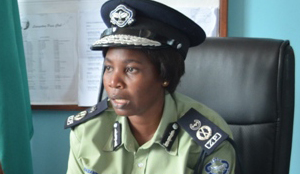By NORMA SIAME –
A STUDY published in 2010 on women came to a conclusion that women are their own worst enemies.
Not only were they unwilling to support fellow women but would constantly pull down or degrade fellow women in positions of authority.
In an interview on this year’s International Women’s Day theme of Inspiring Change, Northern Province police chief Charity Katanga had something say about this phenomena.
Rising through the police force from the entry position of constable up to her present designation of commissioner, Mrs Katanga a legal eagle, said women should revise the way they treat each other.
In her view, most women irrespective of their rank or position did not show a lot love and support for fellow womenfolk.
As illustrated in the The Twisted Sisterhood book, 90 per cent of women surveyed had felt mean and negative ‘undercurrents’ from other women.
The Twisted Sisterhood author Kelly Valen reveals that almost 90 per cent of the 3,000-plus women who took part in her survey frequently felt “currents of meanness and negativity emanating from other females”.
In an article published in The Guardian, Ms Valen said almost 85 per cent of those who took part in the 50-question survey admitted having suffered serious, life-altering knocks at the hands of other women.
They reported that many of their female friendships had an “intense, sinister underbelly”, characterised by “intrafemale incivility” and insidious, “gratuitous negativity”. More than 75 per cent had been hurt by the jealousy and competition of a friend.
Ms Valen said there was “a distinct undercurrent of meanness and negativity plaguing our gender”.
“These secret, social battles are waged, in many cases, by the very same women singing the praises of girl power, feminism, and female friendship in their lives.”
Ms Valen said she was shocked by the number of women who told her that they endured their female friendships behind “frozen smiles and a facade of intimacy”. The battles waged beneath the surface were so merciless, she was told, that women felt unsafe with each other.
“They have correctly identified that the primary threat to [their] emotional security radiates … from fellow females,” Ms Valen said.
Cultural icon from Oprah Winfrey praised Ms Valen’s “bravery” in speaking out. Citing the book as an important wake-up call, they called on all women to read The Twisted Sisterhood: Unravelling the Dark Legacy of Female Friendships.
Mrs Katanga is also of the view that women should be tolerant of other women especially in male dominated jobs.
“You find that when a woman is elevated her female juniors are not happy. Others try to do their best to make her fail. From the other need you find that a female supervisor is scared and is always intimidating juniors because of some preconceived thought that they are after her position,” she says.
Such archaic behaviour has no place in today’s world of constantly changing social dynamics.
“As women we need to appreciate that God gives things at different times. I will not be in this office forever. One day it will be one my juniors in here and instead of constantly pulling each other down, we should instead work together for our own good,” she says.
She says women are fighting the equality war on too many fronts to be fighting among themselves.
“The bar set for women is very high. You have to prove that you can work as well or better than any man without dealing with issues of envy and jealousy sabotaging work related issues,” she says.
In her close to almost two decades in the police force, this has been an exciting time for to be part of a new era that recognises that women can perform or even outperform male counterparts in many areas.
Many of the women bosses complain that female assistants and secretaries often believed that there was more status in working for a man, and that they hold their female bosses in less esteem.
There’s the question of why many women don’t help each other up the career ladder.
As Government makes progress in keeping its end of the bargain of having more than 30 per cent women in positions of leadership, women need to be reminded that their bonds of sisterhood need to be strengthened and not destroyed so that more women get positions of responsibility
Mrs Katanga said women should also be willing to work hard. She warns against the spirit of complacency that good things will come on the simple basis of one’s gender.
She says she went through law school and was admitted to the bar on her second attempt.
“Don’t be fooled, hard work is what pushes you forward,” she says.
Though the focus points for this year’s Women’s Day are many and vary depending on location, it would be wise for women to see beyond the suits, and matching t-shits and jeans they will match in. Women need to adopt traits that will not only prop them up and improve their lot but inspire decision makers to avail more positions of leadership to women.







